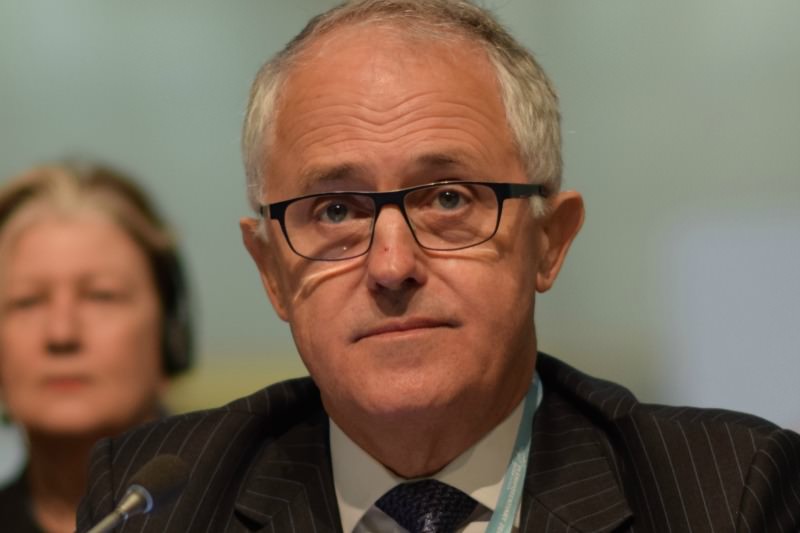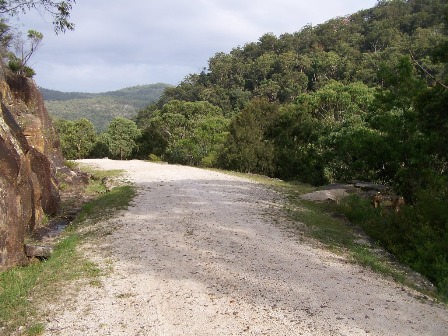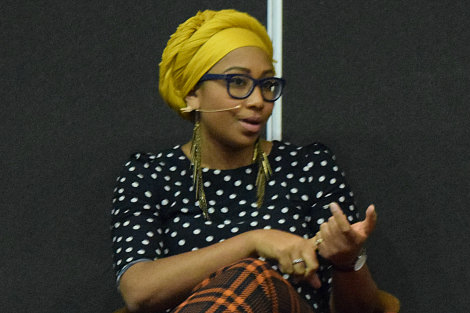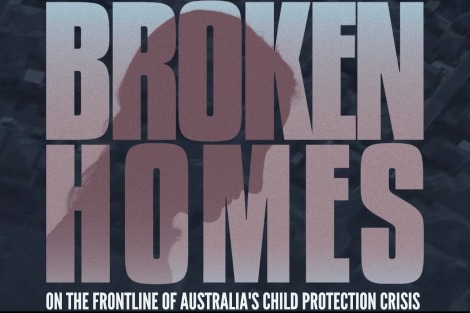Keywords: Horror
There are more than 200 results, only the first 200 are displayed here.
-

AUSTRALIA
- Fatima Measham
- 21 June 2017
15 Comments
In the latest Essential poll, the primary vote for Pauline Hanson's One Nation lifted to 11 per cent. It does not bode well when competence is no longer the baseline; though in a leadership vacuum, 'someone else' holds a natural appeal. In any case, there can be worse things than incompetence. There is timidity. Mediocrity. Running up the cost of doing nothing at all. In so many ways, the Australian political class is holding us back. That is the crux of nearly every policy impasse over the past several years.
READ MORE 
-

MEDIA
- Barry Gittins
- 16 June 2017
4 Comments
An article focusing on the 2013 Boston Marathon bombings reported that people 'exposed to more than six hours of daily media coverage of the tragedy were more likely to experience symptoms of acute stress than those directly affected by the event'. News junkies, or those who saw extended coverage, were found to be worse off than those who actually survived the bombings. This is sobering as we consider how we deal with our children's exposure to traumatic events playing out on TV news.
READ MORE 
-

AUSTRALIA
- Michele Madigan
- 06 June 2017
11 Comments
In 1978 Kaurna/Narungga woman, Georgina Williams, said to me that Aboriginal people tend to be first on the receiving end of governmental oppressive practices and, when that works, the practices are extended to other poor Australians. Thirty-nine years later, almost every day brings new evidence of a relentless campaign against the poor, of which Cashless Cards are but one particularly vindictive example.
READ MORE 
-

ARTS AND CULTURE
If two current Australian films are anything to go by, then one social issue weighing on local filmmakers in 2017 is the danger to women of emotionally and physically violent men. Neither film is a mere portrait of victimhood. The heroes of Cate Shortland's recent Berlin Syndrome and Ben Young's upcoming Hounds of Love - in the former, an Australian traveller in Europe, in the latter, a teenage school girl in suburban Perth - are ordinary women with both the will and capacity to fight back against their assailants.
READ MORE 
-

ARTS AND CULTURE
Repeat your name over and over and it doesn't make sense. Being able to hear your name across a noisy crowded room. Being able to see things in the dark by not looking at them directly. Walking down an old path brings back a conversation you had in exactly the same location years ago. Your handwriting looks exactly like your father's. Revisiting a childhood park destroys the memory and paves over it with the newer, boring adult memory. When you chase something you can't have it.
READ MORE 
-

MEDIA
- Rohan Salmond
- 28 April 2017
35 Comments
Even though the post was quickly withdrawn and an apology issued, the backlash has lasted more than four days. It was enough to warrant a front page story on The Daily Telegraph, a call for Abdel-Magied's dismissal by the deputy prime minister and public repudiations by half a dozen government front benchers and other politicians, including Pauline Hanson. It's ironic that the very commentators who constantly rail against political correctness are apoplectic about a woman being politically incorrect.
READ MORE 
-

ARTS AND CULTURE
- Jena Woodhouse and Ian C. Smith
- 24 April 2017
2 Comments
Now, the forces of annihilation once again cohere, as if this were a valve in history's cardiac arrhythmia that faltered and unleashed a haemorrhage of horror, trauma, fear. The damask roses bloom unharvested in devastated fields. Their perfume cannot mask the stench that permeates the air, the atmosphere of dread, of mute despair. But when the juggernaut of war is redeployed elsewhere, the fragrant fields will come into their own, if there are hands to care.
READ MORE 
-

RELIGION
- Bill Wright
- 06 March 2017
4 Comments
Speaking of reform in the church can mean many things. Often it's about practical matters: sorting out the Vatican Bank, changing how bishops are chosen or clergy trained; that sort of thing. Occasionally, however, reform is about seeking real religious change. Martin Luther, I want to suggest, is one of those reformers who was not concerned with tinkering with structures of the church but with reforming the Christian message so that it might reform the believer.
READ MORE
-

ARTS AND CULTURE
- Allan Padgett
- 01 March 2017
Notes that humans cannot hear include the sound of thylacines crying in a van diemen forest, a dodo's plaintive shuffle on a nearshore kiwi island, a mammoth's woolly orgasm on an ecstatic arctic tundra, an esperance dog weed's silent transpiration, the rumbles of a gastric brooding frog giving birth by burping - these things are far too late for caring. Things we need to see and taste include the surging milk of human kindness, the euphoric rainbow of random caring - these would make a nice day nicer.
READ MORE 
-

AUSTRALIA
- Daniel Nicholson
- 24 February 2017
9 Comments
In the footage of one violence protest, I was shocked to see a handful of my homeless clients, draped in Australian flags, engaged in street battles with anti-racists. These young men had experienced alienation, exploitation and poverty - all the things the Left is supposed to fight against. Long, uncomfortable conversations don't make for good social media content, yet if Australia is to stare down the threat of a rising alt-right it won't be done by yelling at right wing fringe groups across a police barricade.
READ MORE 
-

INTERNATIONAL
- Brigitte Dwyer
- 24 February 2017
6 Comments
To many in the West, we are living in a time of despair, an era of nihilism and meaninglessness, signified by growing violence, environment degradation and, most importantly, political chaos. This combination of events, and the sense of hopelessness that accompanies them, can easily be seen as markers of doom, a sign that the era of Western culture is in terminal decline. But it's also possible to interpret them as indicators of the malaise that marks the very peak of life.
READ MORE 
-

AUSTRALIA
- Oliver Jacques
- 27 January 2017
10 Comments
Allowing the Catholic Church to investigate itself was once described by an abuse victim as akin to 'putting Dracula in charge of a blood bank'. The Church now largely accepts the value of outside scrutiny, and has even endorsed a national redress scheme that would subject it to independent examination of its complaint handling and treatment of victims. But there is another institution - plagued by rampant child abuse in 2016 - where the vampires in charge are still trusted to mop up the blood.
READ MORE 